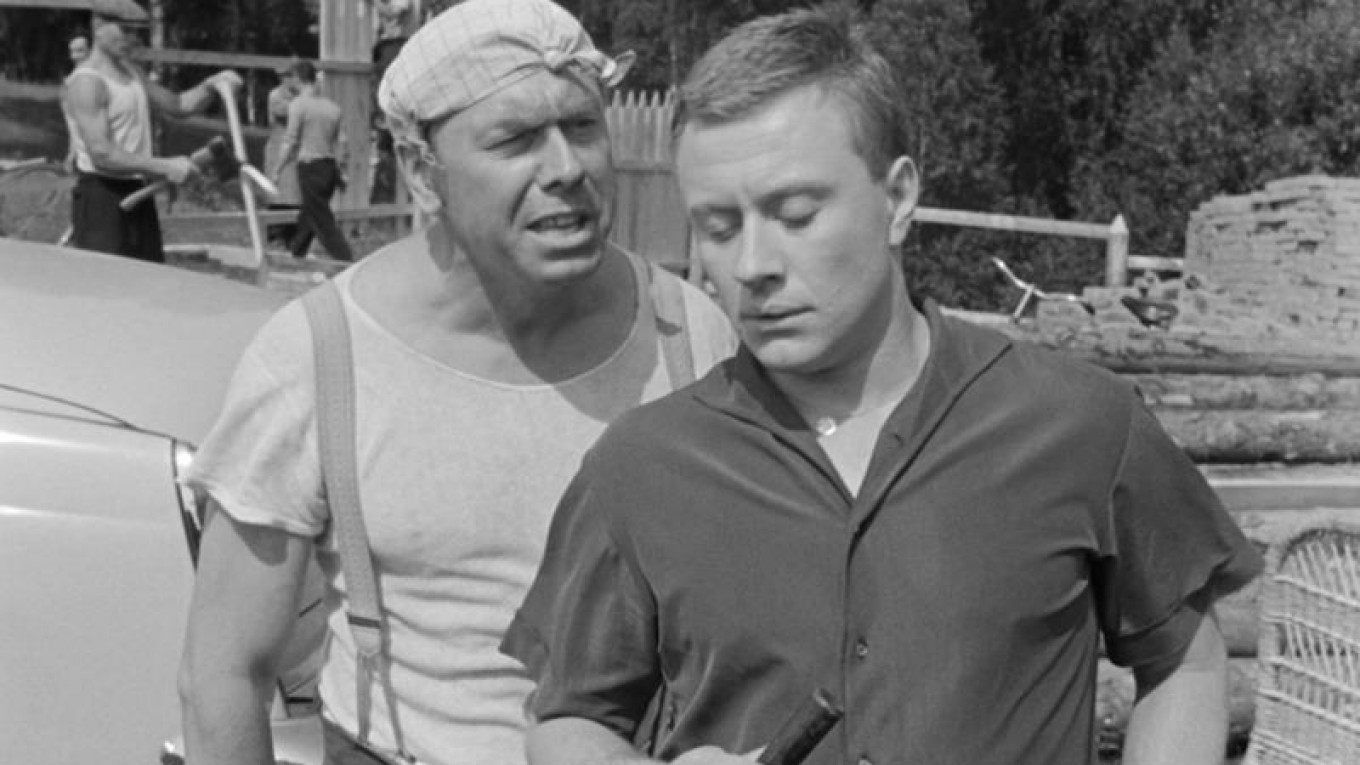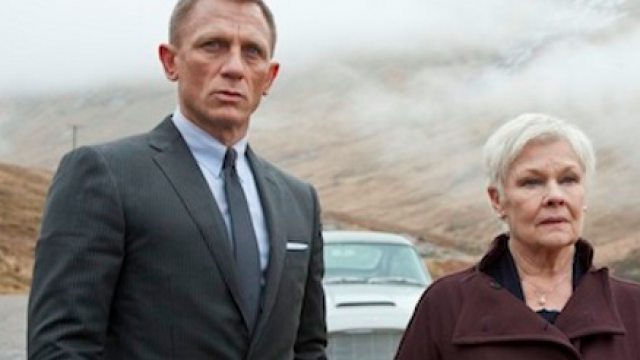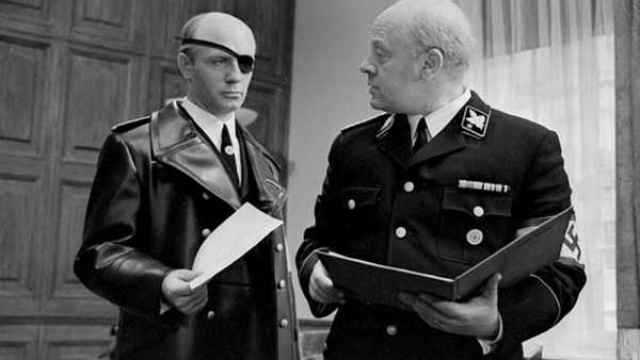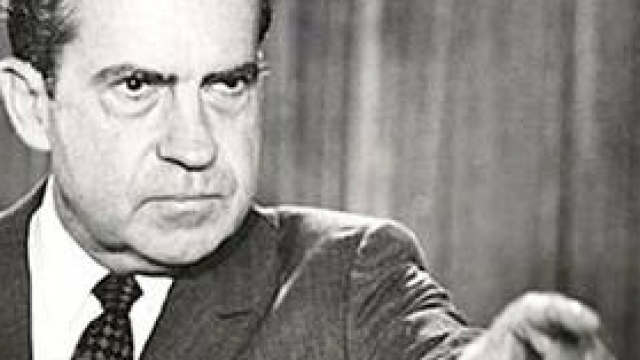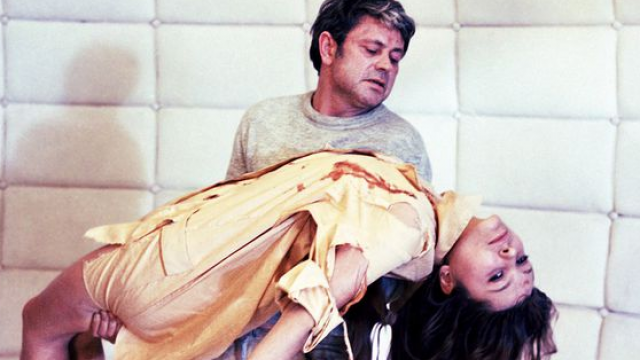It’s Back to School Week, but Moscow TV offers some good reasons for playing hooky and doing some cinema “homework.” This Monday through Friday you can learn: what made the glamour couple of Soviet Hollywood tick, what happened when the co-author of “Andrei Rublev” directed Sylvester Stallone (or tried to) and how themes from “Grand Theft Auto” and “Hamlet” combined to make one of the most beloved Soviet films of the 1960s. Take good notes, there may be a quiz next Monday…
The week starts with an excellent two-for-one deal from Kultura’s glitter archive. First, from the commendable «Greater Than Love» series, you get a revealing 2003 «dual biography» of Soviet-era megastar Lyubov Orlova and her director-husband Grigory Aleksandrov; this is followed by one of the couple’s joint films, the seldom-aired "Spring" (1947). The documentary does a fine job of filling in viewers on the history and peculiar internal dynamics of "the reigning couple of Soviet Hollywood." As for "Spring," you’ll never see another late-Stalinist "musical comedy with elements of science fiction," now will you? This one was filmed in the former Czechoslovakia, scored by the great Isaak Dunayevsky and boasts a male lead you won’t soon forget: Nikolai Cherkassov. Yes, Eisenstein’s riveting Ivan the Terrible, here playing a film director who is Orlova’s love interest. Intrigued? You should be.
Greater Than Love. Lyubov Orlova and Grigory Aleksandrov Больше, чем любовь. Любовь Орлова и Григорий Александров. Kultura, Monday at 7:45 p.m.
Spring Весна. Kultura, Monday at 8:25 p.m.
On Tuesday REN TV answers a question that probably stumped late-Soviet era moviegoers for years: What would happen if one of Moscow’s most talented young directors somehow escaped to Hollywood, where a major studio gave him too much money and too little time to make a slam-bang action picture starring Sylvester Stallone? Well, what happened was “Tango & Cash” (1989). The film was directed for Warner Bros. by Andrei Konchalosky, co-author of the Russian classic “Andrei Rublev” and compiler of an enviable portfolio of Soviet films over the 1960s-70s (including “Asya Klyachina,” “Uncle Vanya” and “Siberiade”). This movie somehow survived a long series of production disasters and studio meddling, emerging in the end as an agreeable Russian-American mess that actually did make money. Tune in for some good dumb fun.
Tango & Cash Танго и Кэш. REN TV, Tuesday at 2:00 p.m.
Your Wednesday evening will be brightened considerably by the classic Eldar Ryazanov caper-comedy “ Watch Out for the Car ” (1966). This unique “satirical Soviet noir” production evolves in several entertaining directions from the unlikely premise that a Moscow car thief deserves your sympathy — to a point. A morally upright insurance salesman named Detochkin steals cars from “bad people” (who make “illegal income”) and gives the money he makes from selling them to “good” ones (who run orphanages). The principled if felonious socialist Robin Hood is marvelously played by Innokenty Smoktunovsky, “the Russian Olivier”, and he is met and matched by Oleg Efremov as Detochkin’s good-natured nemesis — a dogged detective who, like the hero, is also an avid amateur actor. Naturally, cop and robber resolve their differences through an inspiring performance of “Hamlet.” It’s far-fetched, sure, but “Watch Out” is also genuinely touching and laugh-out-loud funny. This wildly popular film was a watershed social event for its commentary on Soviet corruption and marked the beginning of the “Ryazanov Septet,” an unbroken string of seven serio-comic Mosfilm hits that ran through “Garage” (1979).
Watch Out for the Car Берегись автомобиля. Dom Kino, Wednesday at 7 p.m.
Brits are often surprised to find that Soviet filmmakers could produce very good movies from very English sources, including an excellent Sherlock Holmes series (1979-86) and this Thursday’s offering from TV1000: a fine rendition of Agatha Christie’s all-time bestselling thriller “And Then There Were None” (1987). Written and directed by Stanislav Govorukhin, this production takes very few liberties with Dame Agatha’s work — claiming to be, in fact, “the only screen version that retains the pessimistic character of the novel’s denouement.” If that sounds a little downbeat, rest assured that the great Crimean locations and top-notch ensemble cast that Govorukhin skillfully diminishes as the story’s eerie events unfold make this highly-rated audience frightener more than worth a (nervous) look.
And Then There Were None Десять негритят TV 1000 Russkoye Kino, Thursday at 12:20 p.m.
September 3 marks the 75th birthday of the Soviet-American journalist and prose writer Sergei Dovlatov (1941-1990), which Kultura honors Friday night with the excellent biographical documentary “Life Isn’t Easy: Sergei Dovlatov” (2007). The writer’s story is a remarkable combination of inspiration and melancholy: after decades of unpublished obscurity in the Soviet Union, Dovlatov emigrated to the United States, where his prose gradually found audiences in the Russian-language press and, in English translation, in The New Yorker. Over a single decade Dovlatov’s lyrical short fictions made him, according to Nobelist Joseph Brodsky, “the only Russian writer whose works will be read all the way through” – and, as of 2014, the only Russian writer with a street in New York named for him. This documentary skillfully employs a good selection of Dovlatov’s contemporaries — including such veterans of the dual-culture intelligentsia as Vasily Aksyonov, Anatoly Naiman and Ernst Neizvestny — to describe a life that should have been longer but still earned an enviable measure of immortality.
Life Isn’t Easy: Sergei Dovlatov Жизнь нелегка...Сергей Довлатов. Kultura, Friday at 11:40 p.m.
Mark H. Teeter is the editor of Moscow TV Tonite on Facebook http://www.facebook.com/Moscow-TV-Tonite-349389231807098/
A Message from The Moscow Times:
Dear readers,
We are facing unprecedented challenges. Russia's Prosecutor General's Office has designated The Moscow Times as an "undesirable" organization, criminalizing our work and putting our staff at risk of prosecution. This follows our earlier unjust labeling as a "foreign agent."
These actions are direct attempts to silence independent journalism in Russia. The authorities claim our work "discredits the decisions of the Russian leadership." We see things differently: we strive to provide accurate, unbiased reporting on Russia.
We, the journalists of The Moscow Times, refuse to be silenced. But to continue our work, we need your help.
Your support, no matter how small, makes a world of difference. If you can, please support us monthly starting from just $2. It's quick to set up, and every contribution makes a significant impact.
By supporting The Moscow Times, you're defending open, independent journalism in the face of repression. Thank you for standing with us.
Remind me later.



